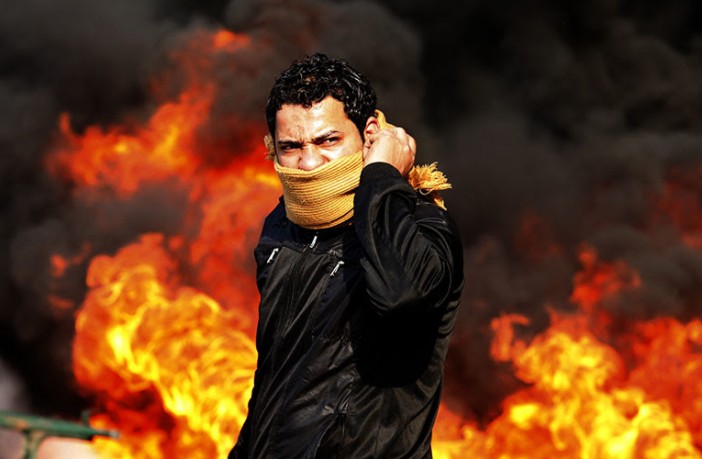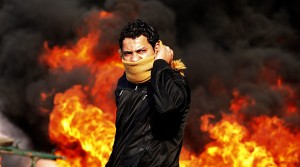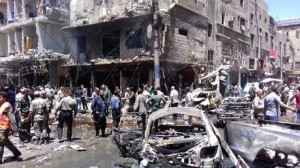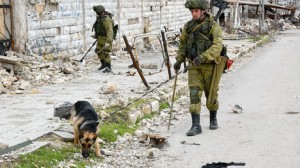RT
The administration of US President Barack Obama made a mistake when it hoped to impose Western values and Western-style democracy in the Middle East during the Arab Spring, according to outgoing CIA Director John Brennan.
“I think there were very, very unrealistic expectations in Washington, including in some parts of the administration, that the Arab Spring was going to push out these authoritarian regimes and democracy is going to flourish because that’s what people want,”Brennan said in an interview with CNN.
Earlier this year Brennan, who spent years stationed in the Middle East, already admitted that the Arab Spring uprisings that began in late 2010 created fertile ground for terrorists. But in his latest comments, he said the focus should not be solely on the “symptoms of the problems” like terrorism and violence, but rather on the underlying factors such as governance.
‘US-supported Arab Spring created power vacuum across Middle East’
Assessing the prospect of Western-style democracies taking root in Middle Eastern and North African states, he concluded that what the people of these areas actually want is freedom “for themselves, or their group, or their tribe,” while the “concept of democracy is something that really is not ingrained in a lot of the people and the cultures and the countries out there.”
The CIA head also discussed the ongoing crises in the Middle East, noting that some of the decisions Washington has made over the past two decades may have contributed to the current state of affairs.
For instance, he pointed at the 2003 invasion of Iraq as “the reason why there was the tremendous slide into violence and bloodshed in that part of the world,” adding that “history would have been different” if the US had not fully withdrawn from the country in 2011.
Echoing his previous comments, Brennan said he sees the move to leave Iraq as “a contributing factor” to the instability in the region and the rise of Islamic State (IS, formerly ISIS/ISIL).
“If we knew then what we know now in terms of what ISIL was able to do, in terms of just this explosive growth in Iraq that then was able to lop over into Syria, would we have pursued the same course? Probably not,” the official stated.
READ MORE: ISIS, sectarian conflict & chaos: Iraq 10 years after Saddam Hussein’s death
Brennan also said the Syrian civil war could have played out differently had the US provided more active help to the Syrian opposition when the crisis first unfolded – as US critics of the Obama administration suggest should have been done.
“If additional support was provided by various international actors to the […] Free Syrian Army, early on, might that have made a difference? Maybe. Because at that time, the Syrian regime was reeling and was more vulnerable,” the official noted.
Read more
‘Brennan’s crocodile tears over scorched Syria give hypocrisy a bad name’
Brennan warned, however, that providing military support to the Syrian opposition earlier would have presented its own challenges, with the opposition being an unstable, “very eclectic” mix of secular and extremist groups.
“Supporting the opposition blindly and throwing weapons over the transom into Syria could have led to a worse outcome than today,” Brennan concluded.
The CIA chief recently slammed Russia’s anti-terrorism efforts in Syria as a “scorched-earth policy” far from “something that the United States would ever do.”
Russian Defense Ministry spokesman Major General Igor Konashenkov last week said that the operation does indeed differ from the actions of the US coalition, which are focused on “methodically and steadily destroying Syrian economic infrastructure.”
President Vladimir Putin, in an interview with Russia’s NTV channel in December, said that the Arab Spring itself and the negative consequences for the region occurred because key nations “preferred not to observe” the norms of international law “to satisfy their geopolitical interests.”
Putin noted that the late Russian Prime Minister Evgeny Primakov warned about the possible harmful effects of the Arab Spring, but stated that at the time Russia “could not influence directly and practically the development of events, or our opportunities to influence those events were rather limited.”
The so-called Arab Spring was a revolutionary wave of both violent and non-violent demonstrations, protests, riots, coups and civil wars in the Arab world that began in December 2010 and spread throughout the countries of the Arab League and its neighbors. It led to the overthrow of the governments of Tunisia, Egypt, and Yemen, and caused civil wars in Libya and Syria, as well as mass disorder in Algeria, Iraq, Morocco, Oman, and other countries.










